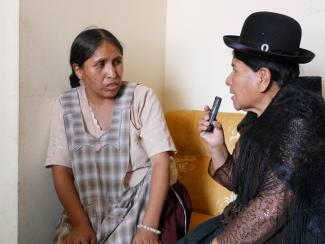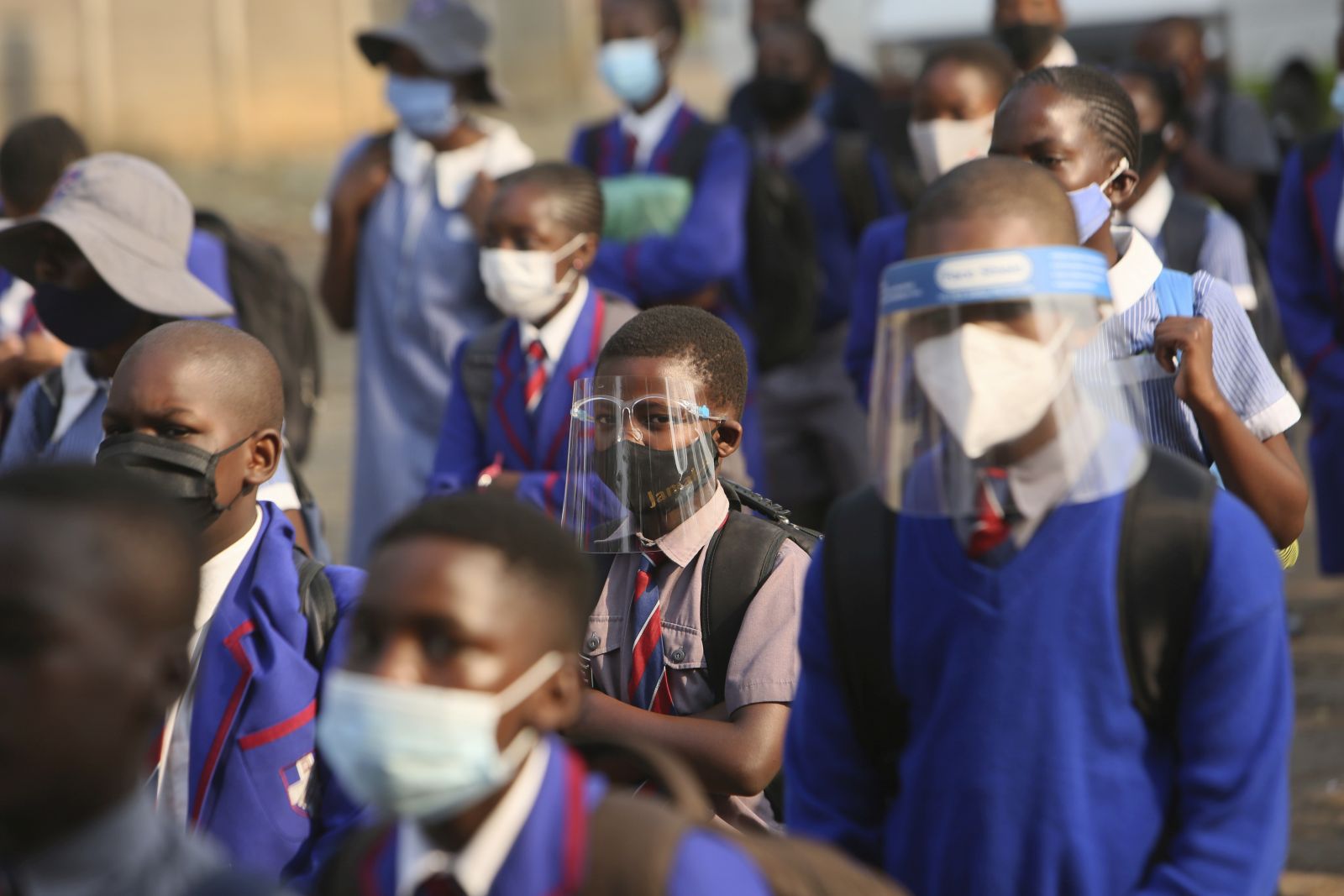Participation
Better qualified

During the eight years of Evo Morales’ government, Bolivia has undergone many structural changes. That is true of the media too. The right to information and communication has been made part of the national constitution. In 2011, a new telecommunication law was passed. It distributes radio frequencies evenly between public, private and community radios. By 2017, only a third of all radio stations should be commercially oriented. Another third will be public and state broadcasters, and the last third will be shared by local groups, indigenous communities, peasant organisations and trade unions.
In this reform context, the government started 40 radio stations that are controlled by indigenous communities. These so-called Radios de Pueblos Originarios (RPO – radios of the original peoples) are based all over the country. On top of that, there are 80 community radios with a similar orientation.
The newly constituted radio stations do not have enough professional journalists who are able to produce news or other journalistic formats. So additional journalists – so-called “comunicadores populares” (communicators of the people) – are being trained by CEPRA, the Centro de Producción Radiofónica (centre for radio-programme production) in Cochabamba.
Bolivia’s “comunicadores populares” are local journalists who come from rural communities, who belong to grass-roots organisations and who are trained to inform people in the countryside. They are basically a kind of citizen journalists. They are particularly active in regions that previously did not have much access to information at all and that hardly ever featured in media coverage. In these areas, the medium radio serves to allow local people to learn about current affairs and to get involved personally.
CEPRA organises the training and qualification of these indigenous journalists in order to improve their journalistic knowledge and skills. The lead motto is: “There is no development without participation, and there is no participation without communication.”
CEPRA was founded in 1980 as a private, non-profit organisation. Initially, it mostly produced radio series, so-called “novelas”. Back then, Bolivia was still a dictatorship. The “novelas” were broadcast in Quechua and Aymara, two indigenous languages, but also in Spanish. They were a practicable way for many members of the opposition to express implicit criticism of the government.
Since its beginnings, CEPRA has been organising trainings in radio journalism. The idea was always to promote an active citizenry and a discerning public in Bolivia. In the past nine years, CEPRA has been working with a radio network of its own. It began to grow in 2005, as various community radios were eager to join forces. The central office in Cochabamba broadcasts in Spanish, Quechua, Aymara and more indigenous languages. The aim is to involve all strata of society in the process of communication and to offer alternative forms of learning.
The workshops that CEPRA runs, apply the principle of dual training, tackling both theory and practice, in a joint project of the Bolivian Ministry for Communication, the German development agency GIZ and CEPRA. The courses cover the following aspects:
- Skills: journalistic methods, such as the tools for proper investigation, contribute to the production of better programmes.
- Regional networks: local radios in the highlands, the valleys and the lowlands cooperate closely and tell CEPRA about the needs and demands of local communities, thus opening up an important space for exchange between radio stations and civil society.
- Certification: in cooperation with the Ministries for Communication and Education, CEPRA defines standards for the recognition and accreditation of newly trained citizen-journalists by the state. This offers people without academic degrees, but long-time practical experience, an opportunity to have their skills and knowledge officially certified.
To date, CEPRA has trained 400 people; 120 of them started their courses during the government of Evo Morales. His government supports CEPRA, because it focuses on the democratisation of the media landscape and supports socially oriented community radios and radios of indigenous people in particular. The government, for example, pays for the complete technical equipment of the RPOs. It also pays one in 40 RPO salaries.
The policy is not simply meant to give a voice to those who were marginalised for centuries. In a more comprehensive sense, it wants to empower citizens in a way that enables them to drive social change.
Juan Ordoñez Caetano is journalist and trainer at CEPRA, the Centro de Producción Radiofónica, in Cochabamba. juanor18mana@yahoo.com











